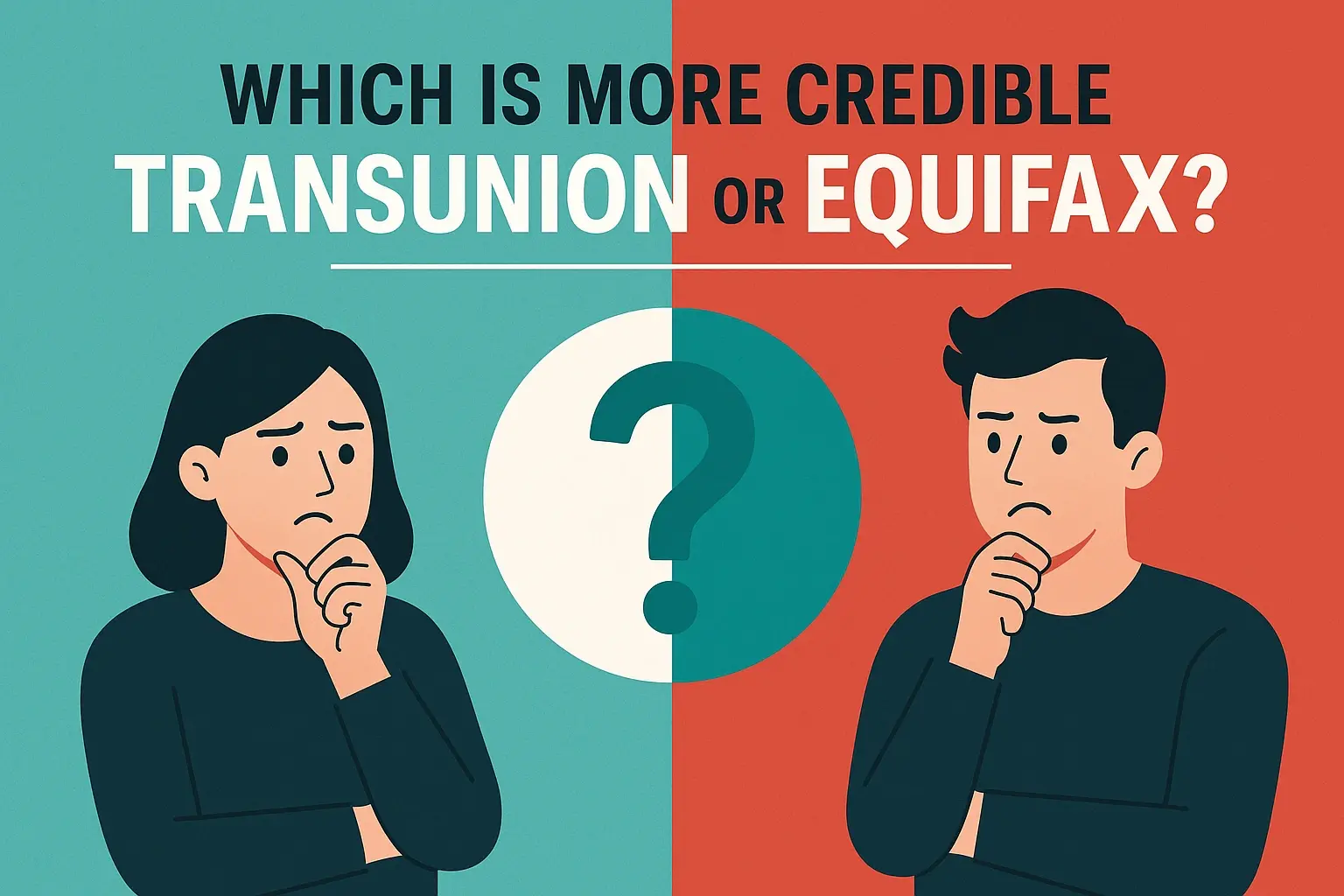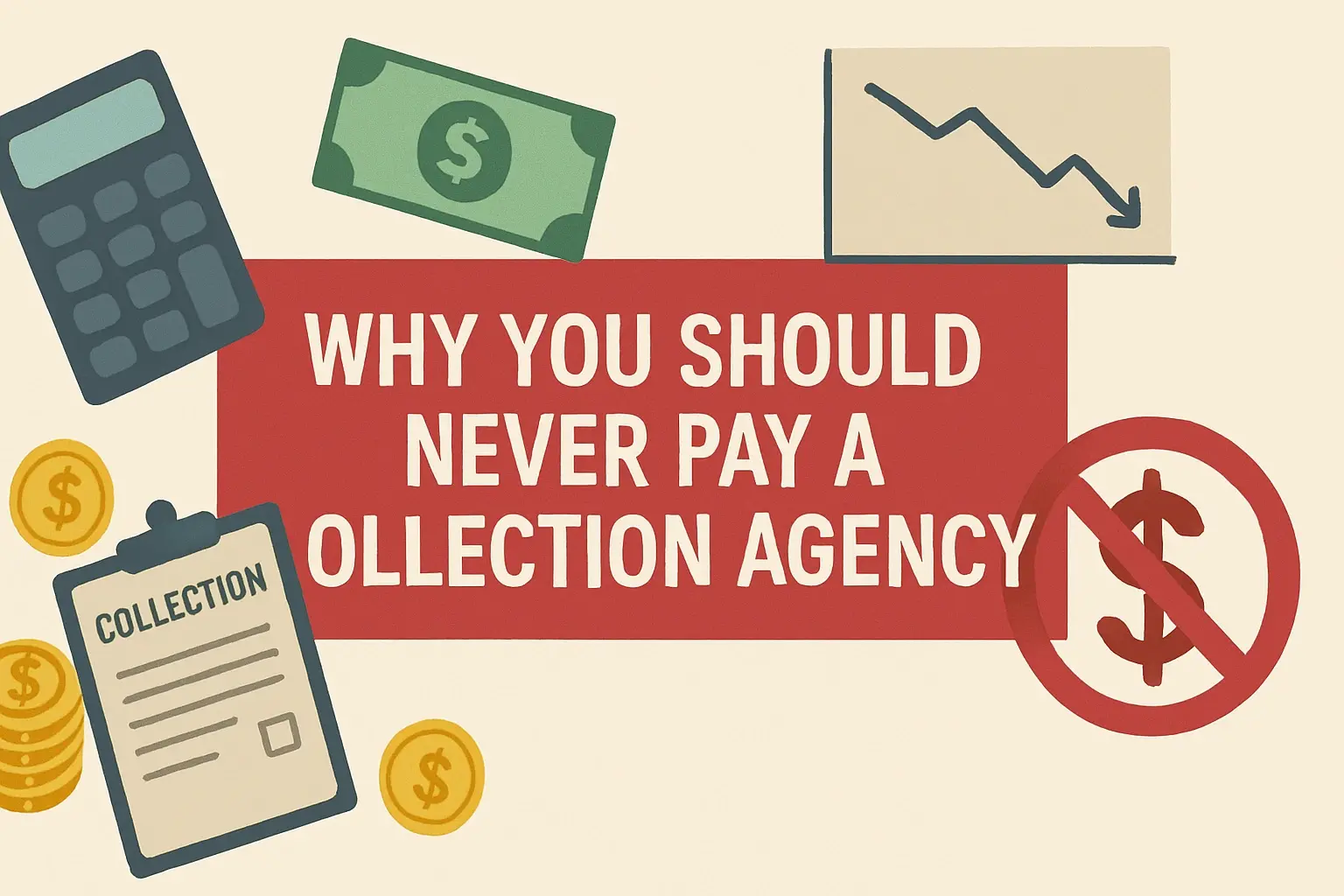-
Posted on: 30 Jul 2024

-
When it comes to managing your financial health and credit score, the data that lenders, landlords, and employers rely on typically comes from one of three major credit bureaus: TransUnion, Equifax, or Experian. But in the debate over credibility, transparency, and consumer value, the conversation often narrows to TransUnion vs Equifax. Which is more credible, and how do you decide whom to trust with your financial record?
What Does “Credibility” Mean for a Credit Bureau?
Credibility in the context of credit bureaus means:Accuracy and transparency of credit reporting
Reliability of scores and updates
Responsiveness to disputes
Strength of identity protection
Reputation, consumer trust, and regulatory history
When you apply for loans or credit cards, your fate often rests in the hands of a bureau’s data—accuracy and security are everything.
Comparing Company Backgrounds and Business Focus
TransUnion is headquartered in Chicago, was founded in 1968, and is known for its extensive consumer credit analytics and global data reach.
Equifax, founded in 1899 in Atlanta, has a legacy focus on both consumer and business credit, making it a key player in commercial credit reporting and identity protection solutions.Data Sources and Reporting Differences
Both bureaus collect massive amounts of data from banks, lenders, utilities, and public records. But their networks aren’t identical!TransUnion and Equifax may each include unique lenders, so your report and score sometimes look different depending on which is used for a loan.
72% of applications show different credit scores between Equifax and TransUnion—meaning it’s wise to check and understand both.
Accuracy and Update Frequency
No single bureau is “most accurate.” Federal law requires all three bureaus—TransUnion, Equifax, and Experian—to strive for complete, up-to-date, and correct information. But discrepancies and mistakes can still occur, so vigilance matters. Both update frequently, but not always at the same time.
Credit Scoring Models and Variance
TransUnion often uses VantageScore 3.0 for consumer reports.Equifax provides VantageScore and its own proprietary scores.
Since the models weigh factors like payment history, utilization, and account age differently, scores will likely vary, especially if a lender prefers one bureau over another.
Identity Protection and User Tools
TransUnion is favored for its user-friendly app, direct identity theft insurance (up to $1 million), and dark web monitoring. Equifax offers strong identity theft recovery support and insurance, but has had past security concerns.Pricing and Services
Pricing varies. Both offer free annual credit reports and paid monitoring plans (TransUnion’s are often more affordable for individuals; Equifax offers richer business-market options).
TransUnion tends to excel for individual consumers, while Equifax has robust business credit features.Controversies and Regulatory History
Credibility also means owning up to mistakes. Equifax suffered a notorious data breach in 2017, compromising the data of 147 million Americans. TransUnion has also faced fines and legal action, including a $60M damages verdict for improperly labeling consumers as security threats. Both have handled large numbers of Consumer Financial Protection Bureau complaints, further highlighting the need for careful review and consumer rights enforcement.Consumer and Industry Reputation
Consumer reviews and ratings are mixed across both bureaus.Equifax has overall positive business compliance reviews, but struggles with customer service and dispute resolution speed.
TransUnion is appreciated for its responsive credit monitoring and easy-to-use platform, but sometimes criticized for inconsistent scores.
Some consumers report more difficulties making corrections with Equifax, while others prefer its fraud protection features.
Lender preferences matter: Some banks and landlords trust Equifax more for business accounts, while consumer lending often leans on TransUnion.
When Should You Choose TransUnion or Equifax?
Pick TransUnion if you:Want a user-friendly dashboard, app, and responsive identity monitoring.
Prioritize regular, detailed consumer reporting and analytics.
Seek affordable personal credit monitoring.
Pick Equifax if you:
Need comprehensive business credit reports or advanced risk-scoring.
Put identity theft insurance, recovery, and education tools first.
Work with lenders, landlords, or industries that specifically trust Equifax.
Pros & Cons Overview
TransUnion ProsEasy-to-use app & dashboard
Strong consumer credit analytics
Affordable for individuals
Excellent identity theft insurance and monitoring
TransUnion Cons
Less recognized for business credit solutions
Scores may differ from lender-specific models
Equifax Pros
Comprehensive business & commercial credit services
Robust identity theft coverage and resources
Widely adopted by major lenders for business
Equifax Cons
Slower dispute resolution/customer service
Past data breach impacts trust for some
Higher cost for premium services
Final Verdict: Which is More Credible?
Neither TransUnion nor Equifax is universally “more credible.” Instead, their credibility depends on your specific needs (personal credit, business analysis, identity security) and how much you value transparency, identity protection, and customer support.
The best practice is to regularly check both scores, address any discrepancies, and use the bureau that aligns best with your financial situation. And remember—credit bureaus are not infallible. Exercise your rights, dispute errors, and protect your data no matter which bureau you use.
Both TransUnion and Equifax remain foundational to credit reporting in 2025. Compare their features, check your reports regularly, and decide which best fits your purpose—whether for personal financial management or business risk assessment. Credibility is multi-faceted: accuracy, security, service, and transparency all matter.
Faq
Q1: Which credit bureau is more credible, TransUnion or Equifax?
A: Both TransUnion and Equifax are credible and widely used credit bureaus. Neither is “better,” but different lenders may rely on one bureau more than the other depending on the loan type.
Q2: Do lenders prefer TransUnion or Equifax?
A: Lenders don’t have a universal preference. Some use TransUnion, others Equifax, and many check all three major bureaus (Equifax, TransUnion, and Experian) before approving a loan.
Q3: Is my TransUnion score more accurate than my Equifax score?
A: Accuracy depends on which bureau has the most up-to-date information from your creditors. One score may appear higher or lower, but both are accurate representations of your credit history.
Q4: Why is my TransUnion score higher than my Equifax score?
A: Score differences happen because creditors may not report to all bureaus at the same time. Variations in reporting dates and credit models (FICO vs VantageScore) can cause differences.
Q5: Which credit bureau is most commonly used by banks?
A: Banks use all three bureaus, but Equifax and Experian are more commonly used for mortgages, while TransUnion is often used for credit cards and auto loans.
Q6: Can I trust TransUnion and Equifax equally?
A: Yes. Both are federally regulated, follow strict guidelines, and are trusted by millions of lenders. Neither is more “trustworthy” — but they may show slightly different information.
Q7: Which bureau gives the most reliable credit score?
A: No single bureau provides the “most reliable” score. Lenders often average scores or pick the middle score from TransUnion, Equifax, and Experian to reduce bias.
Q8: Do Equifax and TransUnion use different scoring models?
A: Yes. Both provide FICO and VantageScore models, but the exact version (FICO 8, 9, 10) may vary. That’s why your score can differ between the two bureaus.
Q9: Should I check both Equifax and TransUnion reports?
A: Absolutely. Monitoring both helps ensure your credit information is accurate across bureaus. Discrepancies may reveal errors or fraud.
Q10: Which bureau should I focus on to improve my credit score?
A: Focus on building good credit habits — on-time payments, low utilization, and healthy credit mix. These improvements will reflect positively on both TransUnion and Equifax scores.










